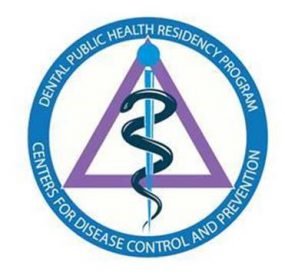CDC’s Residency Program Strengthens Dental Public Health Workforce
Dental public health is a form of dental practice that serves a community rather than an individual, improving the oral health of the whole population. The field works to increase access to oral health care and reduce oral health disparities. CDC’s accredited Dental Public Health Residency Program meets the need for specially trained dental professionals in public health.
“Oral health is critical to overall health, and dental public health is a specialized field of dentistry that seeks to improve oral health outcomes for populations,” said Gina Thornton-Evans, DDS, MPH, Residency Director. “CDC’s residency program can help train dental public health professionals to address physical, built, social, and policy environments to have greater impacts on oral health equity.”
Dental public health is necessary to achieve health equity
Access to dental care for prevention and treatment is critical for overall health and oral health. Unfortunately, research shows that access to oral health care is a significant challenge. In 2020, less than 63% of US adults aged 18 or older had a dental visit. While this is an improvement from previous years, certain racial and ethnic minority groups, people living in poverty, and people living in rural areas have less access to dental care. Disparities in access to dental services directly relate to disparities in the rate of untreated cavities.

CDC’s Dental Public Health Residency Program is a federal residency program that strengthens the dental public health workforce.
- Low-income or uninsured adults are twice as likely to have mild to moderate untreated cavities (one to three teeth affected) and 3 times as likely to have severe untreated cavities (four or more teeth affected) compared to adults with higher incomes or private dental insurance.1
- Nearly 80% of low-income or uninsured adults report that inability to afford care is the most common reason for not getting dental care.1
- People of all ages living in rural America have about 8% to 10% less access to dental services compared with their urban counterparts.2
Residency program strengthens the dental public health workforce
CDC’s Dental Public Health Residency Program is a federal training opportunity that strengthens the dental public health workforce. Residents can create individualized training plans guided by the American Board of Dental Public Health’s (ABDPH) 10 core competencies. After completing the program, residents are prepared and eligible to take the ABDPH board certification, joining the ranks of Diplomates of the American Board of Dental Public Health.
“The residency will give you a lot of knowledge, tools, and resources to move your career in all facets of dental public health competencies,” said Jorge Bernal, DDS, MPH (2021 program graduate).
Shanele Williams, DDS, MPH, a 2017 program graduate, said it’s important for current dental students to have exposure to the dental public health specialty. “As the population size in our country continues to increase and advancements allow people to retain their teeth for longer periods of time, the need for advancements in access to care and models of care will continue to grow,” she said. “I really believe the dental profession will experience a growing need for people who have public health expertise to complement their clinical knowledge.”

The program provides guided practice and collaboration with public health and dental stakeholders to achieve improved oral health for populations.
Passion for community health preferred for residency applicants
It takes a community-focused dentist to address oral health disparities and help make improvements in care. “Anybody who’s deciding to do a dental public health residency should have a passion for public health,” said Shillpa Naavaal, BDS, MS, MPH, a 2013 program graduate. After completing her residency, Dr. Naavaal helped develop the dental public health program at the Department of Dental Public Health and Policy at Virginia Commonwealth University School of Dentistry. Upon finishing CDC’s program, residents have used their experience in public policy, academia, military, and nonprofit work.
For more information, please visit our DPHR Program page.
- Williams S, Wei L, Griffin SO, Thornton-Evans G. Untreated caries among U.S. working-aged adults and association with reporting need for oral health care. J Am Dent Assoc. 2021;152(1):55–64. DOI: https://doi.org/10.1016/j.adaj.2020.09.019
- Hannan CJ, Ricks TL, Espinoza L, Weintraub JA. Addressing oral health inequities, access to care, knowledge, and behaviors. Prev Chronic Dis. 2021;18:210060. DOI: http://dx.doi.org/10.5888/pcd18.210060